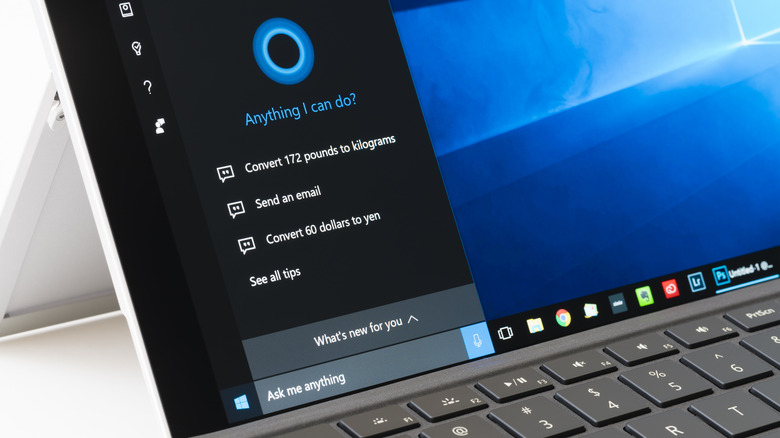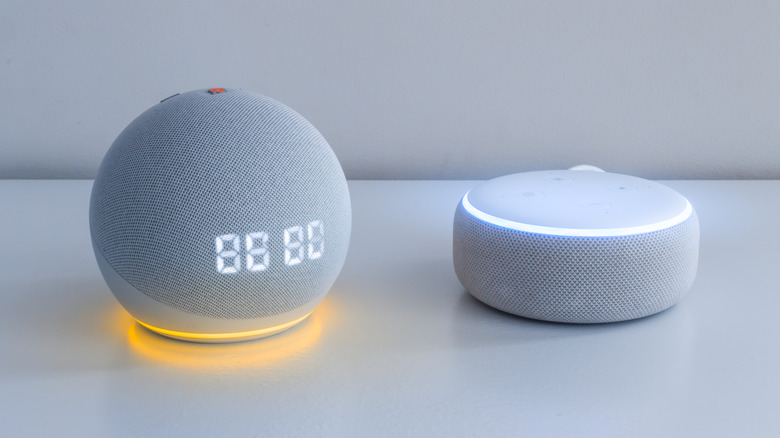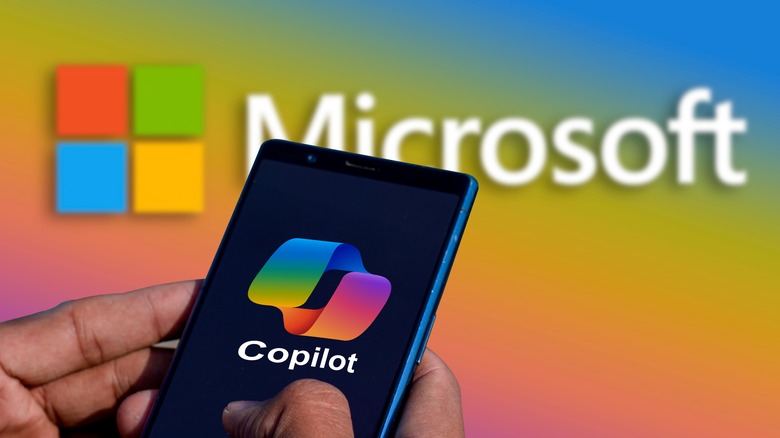Why Did Microsoft Discontinue Cortana?
Digital assistants were once something of a novelty, but they have long since become commonplace. We have them in our phones, tablets, smart homes, and cars, and can even interface with them via smart appliances like televisions. Some of these interfaces, like Siri, Alexa, and Google Assistant have only grown more advanced as the scope of their utility has expanded, but there have also been a few casualties along the way.
Microsoft developed Cortana, named after a character from the "Halo" games, back in 2014 and there was a time when the company was pushing hard to get PC users everywhere to start using it. The digital assistant was integrated into the Windows operating system, making it impossible to avoid and encouraging consumers to interface with it.
This didn't last, however. Microsoft retired the standalone app in 2023, and it has since gotten rid of the assistant's integration in Teams, Outlook, and Microsoft 365. You might be wondering what made Microsoft decide to drop Cortana, and what plans the company might have for the future. It seems there have been several factors involved, including stiff competition from other digital assistants and the rising trend of AI-powered software.
Cortana wasn't as popular as other assistants
Demand Sage reported in January that the most popular digital assistants as of the start of 2024 were Google and Siri, which were each tied at 36% of the total user base. Alexa was behind them at 25% and Cortana trailed at a meager 19%. So Cortana must be worse, right?
Not exactly. Forbes reported on a different study back in 2018 that was conducted by the digital marketing firm, Stone Temple. This study compared the abilities of Alexa, Cortana, Google Assistant (both home and mobile versions), and Siri, asking them a list of 4,942 questions and recording the percentage of these questions that each assistant attempted to answer and the percentage that were answered correctly. It might surprise you to learn that Cortana was actually the second most accurate assistant after Google. So why did it never get the same reach as Alexa or Siri?
You could speculate any number of reasons, but there is one glaring correlation. The two most popular options, Google and Siri, are also the two that are most commonly pre-installed on mobile devices. Also, like Alexa, they have smart home speakers and whole ecosystems of other smart devices. Cortana started out on the Windows phone, but it spent most of its lifecycle being almost exclusively relegated to computers.
Resources have been funneled into Copilot
The recent advances in computer learning have swept through nearly every facet of the tech industry –- including that of digital assistants. But while Amazon, Apple, and Google have all invested heavily in integrating AI into their existing infrastructure, it seems that Microsoft is taking the opportunity to start over from scratch. Rather than try to add AI to Cortana, Microsoft has decided to reallocate those resources into its new AI-powered framework: Copilot.
Part of the reason for the rebranding is that Copilot isn't based on Cortana's architecture. It draws heavily from the AI-powered chatbot that Microsoft developed for its search engine, Bing. The emergence of this new software seemed to be the final nail in Cortana's coffin, as Copilot essentially rendered the old digital assistant obsolete. It can perform nearly all of the tasks that the old system could while also having generative capabilities that can both independently create, and assist in the creation of text, auditory, and visual content for the user on the fly. Copilot is already available on Windows 11 and can be downloaded as a standalone app on both iOS and Android.


